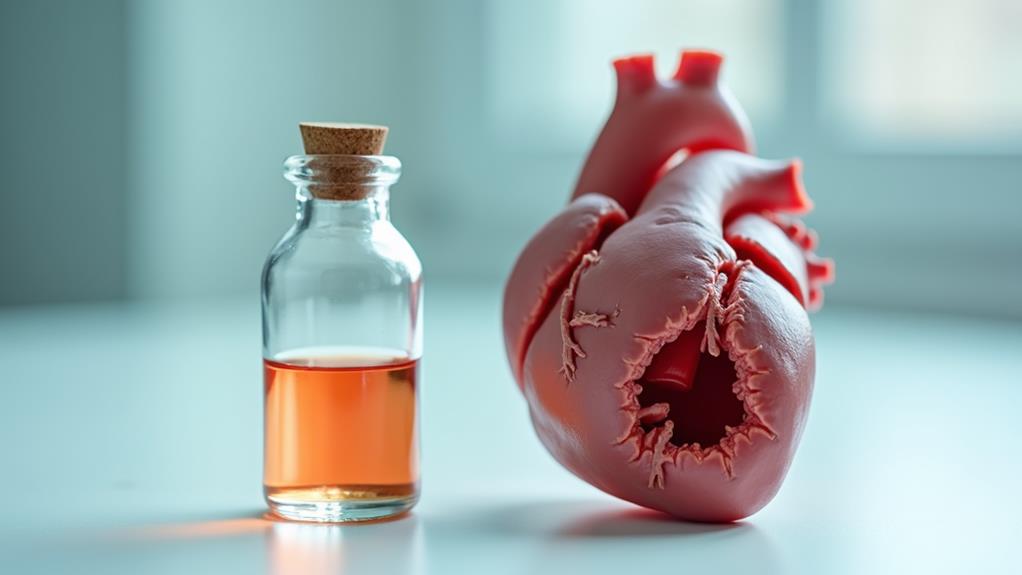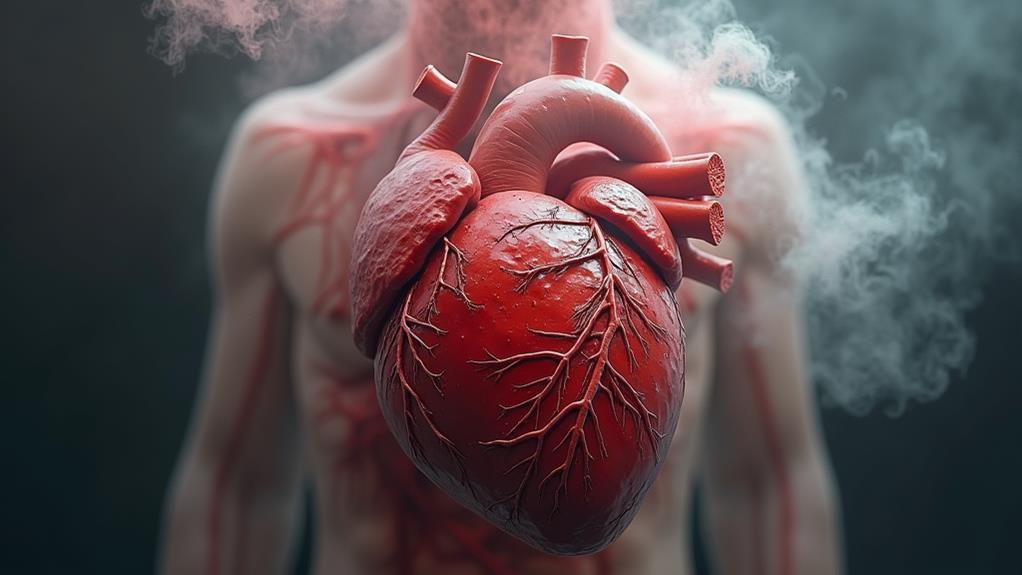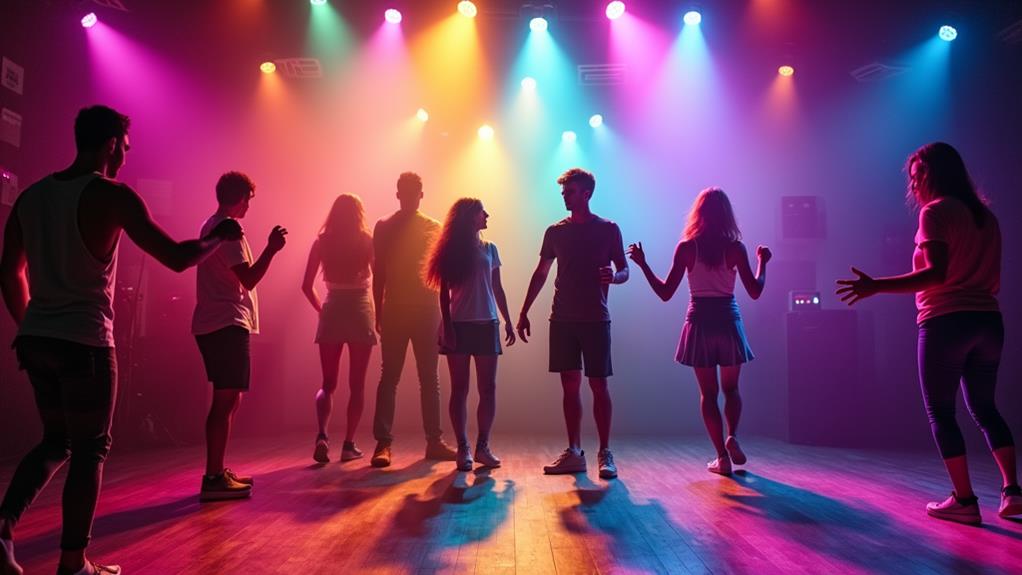Poppers: The Headache That Could Break Your Heart (Literally)
Poppers, volatile alkyl nitrite compounds used recreationally, pose serious cardiovascular risks. These substances cause rapid blood vessel dilation, leading to sudden drops in blood pressure. Users may experience dizziness, fainting, and in severe cases, cardiovascular collapse. Long-term use can weaken blood vessels and compromise heart function. Furthermore, poppers may damage retinal cells and suppress the immune system. In spite of varying legal statuses globally, they remain widely available. The combination of poppers with erectile dysfunction medications can be life-threatening. Although popular in nightclub scenes, safer alternatives exist for those seeking euphoria and connection. Understanding the full scope of popper-related risks is essential for informed decision-making.
What Are Poppers?

Poppers are a group of volatile alkyl nitrite compounds commonly used as recreational drugs. These substances, typically inhaled through the nose or mouth, produce a brief euphoric effect and muscle relaxation. The most common types include amyl nitrite, butyl nitrite, and isobutyl nitrite. Their chemical composition consists of an alkyl group bonded to a nitrite functional group, resulting in a highly volatile liquid at room temperature.
Recreational use of poppers gained popularity in the 1970s, particularly within the LGBTQ+ community and nightclub scenes. Users often report improved sensory experiences, intensified sexual pleasure, and a sense of lightheadedness.
In spite of their widespread use, it's vital to understand that poppers are not without risks. Their vasodilatory effects can lead to sudden drops in blood pressure, headaches, and potentially serious cardiovascular complications. Users have additionally reported visual disturbances such as eye floaters and sensitivity to light.
As with any recreational substance, users should be aware of the potential health implications and exercise caution.
Health Risks of Popper Use

Why are health professionals increasingly concerned about popper use? The widespread availability and perceived safety of these substances mask serious health risks. Poppers can cause severe cardiovascular complications, including dangerously low blood pressure, irregular heartbeat, and increased risk of heart attack.
Studies using optical coherence tomography have shown significant damage to cone cells in the eye from popper use. Prolonged use may lead to retinal damage and vision problems. Furthermore, poppers can suppress the immune system, making users more susceptible to infections.
While poppers have a low addictive potential compared to other recreational drugs, they can still contribute to substance abuse patterns. Regular use may impact mental health, potentially exacerbating anxiety and depression.
The combination of poppers with erectile dysfunction medications can be particularly dangerous, potentially leading to life-threatening drops in blood pressure. Health professionals emphasize the importance of educating users about these risks to promote informed decision-making and safer practices within communities where popper use is prevalent.
Cardiovascular Effects

Cardiovascular Effects
The cardiovascular system bears the brunt of popper use, with potentially severe consequences. Inhalation of these volatile nitrites causes rapid dilation of blood vessels, leading to an immediate and significant drop in blood pressure. This sudden change can trigger dizziness, fainting, and in extreme cases, cardiovascular collapse.
Users often experience increased heart rate and short-lived intense highs, which puts additional strain on the heart. Poppers likewise affect heart rhythm, potentially inducing tachycardia or irregular heartbeats.
For individuals with pre-existing heart conditions, these effects can be particularly dangerous, increasing the risk of heart attacks or strokes. Regular users may experience long-term damage to their cardiovascular health, including weakened blood vessels and compromised heart function.
The combination of poppers with erectile dysfunction medications can result in a life-threatening drop in blood pressure. Users should be aware that the momentary high comes with serious risks to their heart health and overall well-being.
Legal Status and Availability

In spite of their potentially harmful effects, the legal status of poppers remains complex and varies considerably across jurisdictions. Many countries have implemented legal restrictions on the sale and distribution of these substances, whereas others maintain more lenient approaches.
In the United States, for example, the sale of poppers for human consumption is prohibited, but they can be marketed as "room odorizers" or "leather cleaners." The United Kingdom recently reclassified alkyl nitrites, exempting them from the Psychoactive Substances Act 2016.
Australian government tests have revealed misleading information on popper labels, with different chemicals present compared to listed ingredients.
Market trends indicate that in spite of regulatory efforts, poppers continue to be widely available through various channels, including online retailers and adult specialty stores. This accessibility, coupled with their perceived safety among certain communities, has contributed to their sustained popularity.
Nevertheless, ongoing research and evolving legal frameworks may impact future availability and consumer attitudes towards these substances.
Safer Alternatives for Clubbing

Given the potential risks associated with poppers and their ambiguous legal status, many individuals seek safer alternatives for enhancing their clubbing experiences. Several options exist that can provide a natural high without the health concerns linked to inhalants.
Exploring different music genres and rhythmic movements can create an exhilarating atmosphere, stimulating the release of endorphins and adrenaline. Some clubbers opt for mindfulness techniques or meditation before going out, which can heighten sensory awareness and emotional receptivity.
Staying hydrated and avoiding substances known to disturb the metabolism of cells can further protect against health risks. Others find that engaging in group activities, such as synchronized rhythmic movements or participating in themed events, encourages a sense of connection and euphoria.
Staying hydrated, getting adequate rest before clubbing, and maintaining a balanced diet can likewise contribute to a more enjoyable and energetic night out. These alternatives offer a safer way to experience the excitement of clubbing without compromising one's health.
Call Us To Assist You
To sum up, the use of poppers poses significant health risks, particularly to the cardiovascular system. Although legal in many jurisdictions, their availability does not equate to safety. As the adage goes, "All that glitters is not gold." The potential for severe adverse effects, including heart damage, outweighs any perceived benefits. Safer alternatives for recreational use in nightlife settings should be explored and promoted. Further research and public education on the dangers of poppers are warranted to mitigate associated health risks.


